
BU-BCP collaborative initiative on sustainable urban parking

Latest research and knowledge exchange news at Bournemouth University

Expressions of interest invited for Chair and Deputy Chairs of BU’s Research Funding Panels
***DEADLINE EXTENDED TO 14th APRIL 2023***
We are seeking expressions of interest (EoIs) for Chair and Deputy Chair of the new funding panels:
Applications from underrepresented groups (women, minority ethnic, declared disability) are particularly welcome.
What are the Research Funding Panels?
These are the new, agile and responsive way that internal funds for projects that support Doctoral Studentships, Research Development, and Knowledge Exchange and Innovation will be managed at BU from August 2023.
Why should I apply to be a Chair or Deputy Chair? What’s in it for me?
Being a Chair or Deputy Chair of a funding panel means that you are involved in making important decisions about applications for funding. This means you need to be able to evaluate applications fairly and be able to express your thoughts about them effectively in meetings and via feedback. You will be directly involved in the process and therefore helping to ensure that internal funding at BU is used for projects that will have real world impact. It’s also a great opportunity to engage with colleagues from across the faculties.
Chair and Deputy Chair further information:
Eligibility is as follows: EoIs from full members of the Professoriate for the posts of Chair and from Associate Professors and Professors for the posts of Deputy Chair.
These posts are very important to the running of the panels you will be chairing meetings, ensuring that decision-making is fair and robust. As such, we require applicants to these posts to have some experience of chairing meetings, sound knowledge of the panels area and a keen desire to lead the research and knowledge exchange agenda across the university. There won’t be huge demands on your time, but you will be required to read and review multiple applications and there will be occasions when you may need to respond swiftly to requests to amend uses of funds.
Sounds like it could be interesting. How do I apply?
EoIs for the Chair or Deputy Chair roles should consist of a case (maximum length of one page) outlining your suitability for the role. Please outline your experience, your understanding of agenda and anything else you feel relevant.
These should be submitted to the relevant panel mailbox by the deadline of 4.30pm 14th April 2023. Please ensure your EoI clearly states whether you are applying for the Chair or Deputy Chair position.
Studentship Funding Panel – DoctoralCollege@bournemouth.ac.uk
Research Development Funding Panel – ResearchDevelopmentFund@bournemouth.ac.uk
Knowledge Exchange & Innovation Funding Panel – KEandInnovationFund@bournemouth.ac.uk
Professor Dimitrios Buhalis contributes on the Impact of ChatGPT to tourism marketing
CUTTING EDGE PAPER ON ChatGPT with key colleagues and examples from KALAMATA and BOURNEMOUTH 🙂
“So what if ChatGPT wrote it?” Multidisciplinary perspectives on opportunities, challenges and implications of generative conversational AI for research, practice and policy
International Journal of Information Management, Vol. 71, 102642,
https://doi.org/10.1016/j.ijinfomgt.2023.102642
#chatgpt #artificialintelligence #AI #marketing #technology

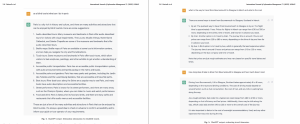
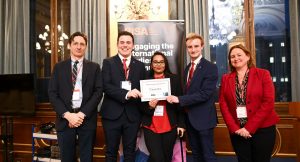 BU students in the Humanities and Law Department, Shahidah Miah (3rd year Law student), Alex Carey (2nd year History student) and Josh Pitt (3rd year Politics student) won the Distinguished Delegation Award at the BISA Model NATO. The event took place at the Foreign Commonwealth and Development Office on Friday, March 3rd, and was organized by the British International Studies Association in partnership with FCDO.
BU students in the Humanities and Law Department, Shahidah Miah (3rd year Law student), Alex Carey (2nd year History student) and Josh Pitt (3rd year Politics student) won the Distinguished Delegation Award at the BISA Model NATO. The event took place at the Foreign Commonwealth and Development Office on Friday, March 3rd, and was organized by the British International Studies Association in partnership with FCDO.
Over 100 students from 30 UK universities participated at the 2023 edition. It is the first time BU takes part in this simulation and wins a team award, against some powerful teams from universities with long tradition of politics and international studies.
What is BISA Model NATO – This is a simulation type of event. Students are randomly allocated a country and each student is part of a specialised NATO body – the Military Committee and the Civil Emergency Planning Committee. The students then have to agree a detailed set of actions to be endorsed in a final declaration by a simulated North Atlantic Council, NATO’s highest authority. BU team successfully represented Canada.
In BISA’s press release summing up the event, Mark Webber (BISA President) said: “The simulation is designed to provide students with experience of crisis decision-making; to get them into the heads of people having to make tough choices in very testing circumstances. The students rose to this challenge very well. The Model concluded with a declaration agreed by all the student delegates on how NATO should respond to a major natural disaster. The students performed just like seasoned diplomats.”
Employability skills demonstrated. Simulation events are a recognised model of learning and allow participants access to insights unobtainable in a traditional classroom setting. Our BU students had very good & concise interventions, demonstrated excellent negotiating skills, proposed great initiatives and worked brilliantly as a team representing Canada, thus contributed to reaching overall consensus at the end of the day. They were true diplomats for a day. And they also networked with fellow students, staff from other universities and diplomats from FCDO. They received glowing praises for their interventions during the day.
Why this is so timely – Students participating in the model are working on the aftermath of a natural disaster – multiple earthquakes across the eastern Mediterranean and South-East Europe resulting in significant loss of life and mass displacement of populations. Given the current context, both geopolitical with the War in Ukraine and the earthquakes in Turkey and Syria, but also more broadly the climate change and the likely increase of natural disasters in the near future, working on such scenarios helps prepare students for real life situations. In addition, such events are inspiring students to embark upon careers and projects in diplomacy, government, non-governmental organisations and the military.
BU delegation at BISA Model NATO was advised and supported by Associate Professor Alina Dolea and Senior Lecturer Scott Keefer.
The full press release featuring our students is available here – BISA/FCDO Model NATO 2023 – Over 100 students from 30 universities | BISA

The Nepal Family Cohort Study (NeFCoS) is a multidisciplinary cohort study into the prevalence, incidence, and determinants of various diseases from childhood to adulthood in children and their parents for over two decades. NeFCoS is a longitudinal study which recently started collecting health and well-being data, and which will collect data repeatedly from the same individuals at certain intervals for years to come. Our primary focus is understanding the multiple risk factors of health conditions in children and their families, early diagnosis of diseases, and prevention and management of diseases through effective intervention. The team aims to this by examining associations between exposure to known or suspected causes of disease, so-called risk factors and subsequent morbidity and mortality.
Our large international team is led by Dr. Om Kurmi, Associate Professor and Respiratory and Environmental Epidemiologist at Coventry University in the UK, and associated with McMaster University, Canada. The Bournemouth University team comprises Dr. Pramod Regmi (Senior Lecturer in International Health), Dr. Edwin van Teijlingen (Professor of Reproductive Health), and Dr. Vanora Hundley (Professor of Midwifery).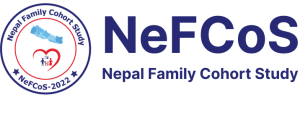
The team is currently recruiting six-to-nine-year-old children and their parents who have provided written consent to participate. The parents offer information on socio-demographics, lifestyle factors, dietary habits, occupational history, educational history, environmental conditions at home and outside, physical activities and any diseases they or their children have had since birth. They also undergo a series of measurements such as lung function, oxygen saturation, blood pressure, hand-grip strength, anthropometry, body fat percentage, muscle mass, body water content and skin-fold thickness as an indirect measure for malnutrition. The study is also measuring eleven different parameters in spot urine samples semi-quantitatively and plan to collect the biological specimen in future follow-ups studies. The study is currently being conducted in two regions of Nepal in the south, the Terai and in the more central hill part of the country, with plans to expand to extend to other provinces of Nepal in the future.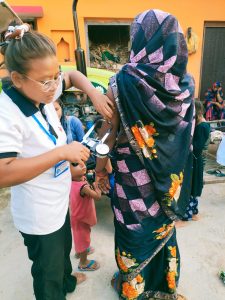
The baseline study is ongoing. So far, the team has collected over 4250 participants’ data from both study sites. We plan to complete the baseline data by the end of December 2023 with about 15,000 participants from the two regions. Our study is urgently needed in Nepal as it will provide valuable information for evidence-based decision-making regarding disease prevention and management along with changing policy.
Prof. Edwin van Teijlingen
Centre for Midwifery, Maternal & Perinatal Health (CMMPH)
Recent advances in neuroimaging, accompanying the coalescence of multiple neurophysiological registration modalities in virtual reality settings, are experiencing a substantial growth in brain research. These developments in experimental and analytical approaches to probe the human brain, open exciting avenues for novel applications in e.g., health, media industries, education, sport, art, or tourism. This topic was the focus of the second symposium of the Interdisciplinary Neuroscience Research Centre , which took place on the last 16th of January at the Inspire Lecture Theatre on Talbot Campus.
The symposium, entitled “New Frontiers in Neuroscience: Neuroimaging and Integrative Multi-Sensing Methods” concentrated on these two linking themes from a cross-disciplinary angle, leveraging synergies between BU departments, collaborators in other universities, industry, charities, and at the NHS.
The event started with a fascinating talk by Mavi Sanchez-Vives (Biomedical Research Institute IDIBAPS, Barcelona), Leader of the Human Brain Project work-package entitled “Networks underlying brain cognition and consciousness”.
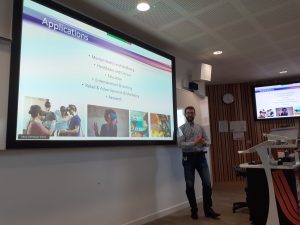
Prof Fred Charles presenting at the 2nd INRC Symposium.
Next, our first session revolved around the integration of multi-sensing methodologies and their industrial applications. In this focused session, we enjoyed three exciting talks, the opening one by Prof. Fred Charles (BU) on multimodal immersive neuro-sensing approaches; followed by Dr. Ifigeneia Mavridou (EmteqLabs), who discussed her appealing research of affective responses to VR environments. Finally, Dr. Federica Degno (BU) showed us her avant-garde work on co-registration of eye movements and EEG recordings.
The second session, centred on neuroimaging recordings in clinical neuroscience, was opened by Dr. Ruth Williamson (Deputy Chief Medical Officer, University Hospitals Dorset), who presented her multidisciplinary study of the effect of cold-water immersion on brain function, inspiring a stimulating debate on its clinical applications. The symposium concluded with Prof. Carol Clark’s (BU) very interesting talk on mapping brain structure, function and cognition in women engaged in sporting activities.
After the symposium, we had two follow-up activities in the afternoon: first a seminar, sponsored by the Department of Psychology and the MINE research cluster, by Dr. Benjamin Schöene (Universität Osnabrück), who debated the novel perspectives that VR offers in psychological research; followed by a visit to the Multimodal Immersive Neuro-sensing lab for natural neuro-behavioural measurement (MINE), led by Dr Xun He .
All of us in the INRC would like to thank very much the attendants to the symposium, and a huge thanks to the speakers for accepting our invitation, and for their compelling talks.
For colleagues who could not make it, the two thematic sessions were recorded, and can be accesed on this link. If you are interest in getting in touch, contributing or joining the Interdisciplinary Neuroscience Research Centre, please do not hesitate to contact Ellen Seiss, (eseiss@bourenmouth.ac.uk) or Emili Balaguer-Ballester (eb-ballester@bournemouth.ac.uk).
Thank you again for your interest, and we are looking forward to seeing you in our next activities.
Kind regards,
Ellen and Emili on behalf of all of us at the INRC
BU LEAP’s research collaboration with Invisible Flock will culminate this year headlining the Brighton Festival on 6 and 7th May in the beautiful Dome Theatre.
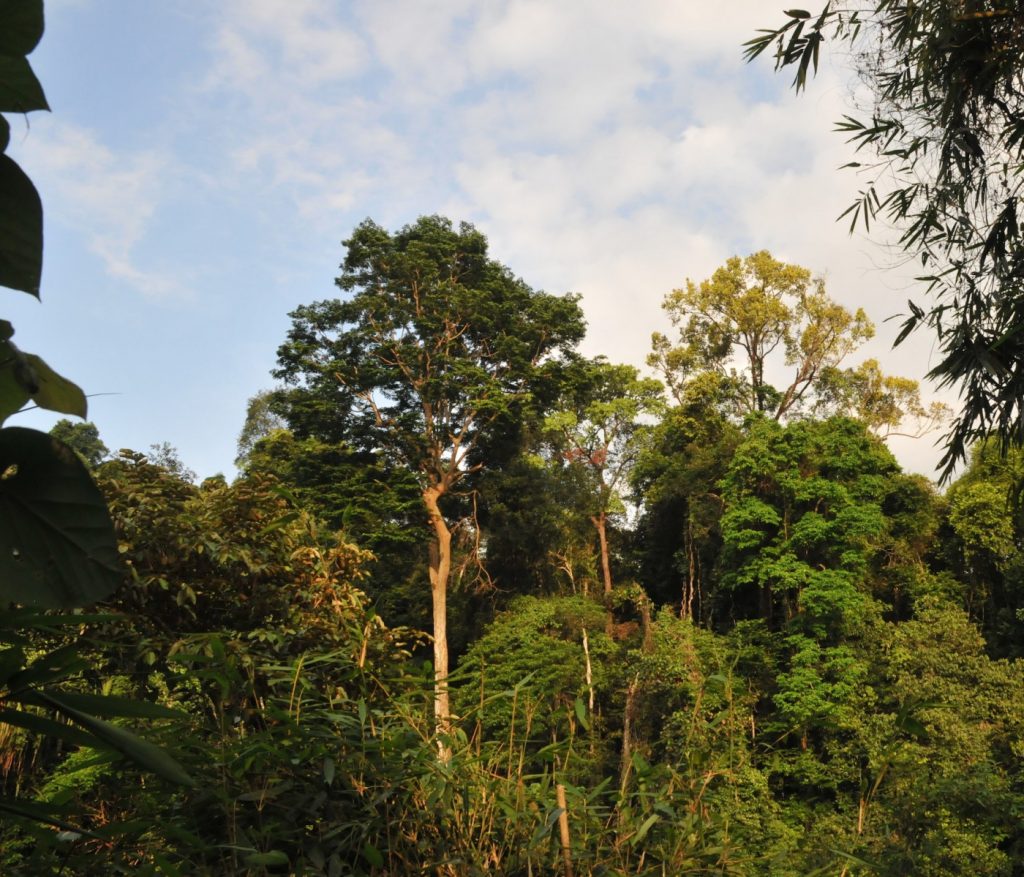
A tall siamang sleeping tree. By AHKorstjens
The sleeping tree is a celebration of the beauty of the Indonesian forest.
Sleeping trees are large trees that are regularly re-used by primates. In this case the work is inspired by the small ape the siamang, Symphalangus syndactylus. Siamangs are endangered apes that live in small monogamous family groups and eat mostly fruit and leaves high up in the canopy. At that height, they are exposed to the high temperatures that we now see in this region. BU’s LEAP research has focused on understanding how temperatures and forest structure vary within this diverse yet previously selectively logged forest, and how such variation influences the behaviour and survival of local wildlife.
How do apes manage current and future conditions?
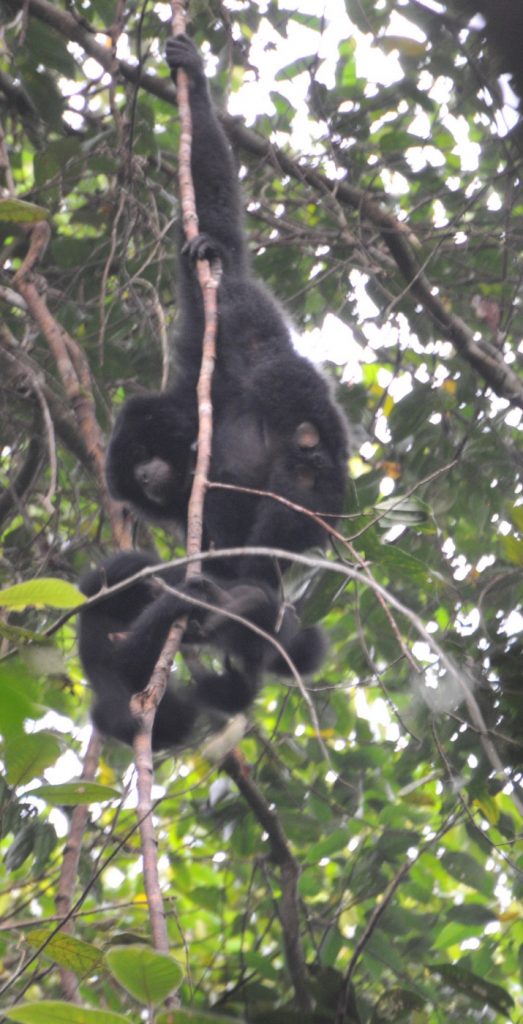
Siamang Mother and Child at Leuser National Park, Credit: Amanda Korstjenst
LEAP (Landscape Ecology and Primatology) research at BU is led by Prof. Amanda Korstjens, Prof. Ross Hill, Dr Philippa Gillingham, and Dr Tom Davis. Siamang research at BU formed part of the PhD research of Dr Chris Marsh and Dr Helen Slater and the MRes research by Emma Hankinson, Rosanna Consiglio, Nathan Harrison, and Jake Hill. Chris and Nathan followed siamang daily through the forests, with local rangers Ucok, Dian and Yagsa, and other Sikundur field station rangers.
Visitors to The Sleeping Tree at Brighton Festival will enjoy the multitude of sounds typical of this biodiversity hotspot. The experience follows the natural cycle of sounds within the forest and is ever changing. If you get up early on Sunday the 7th you can enjoy the morning call chorus of siamangs, lar gibbons and Thomas langurs. Throughout the Saturday and Sunday there will be the multitude of sounds of insects (especially the always present cicadas), amphibians, birds, deer, pigs, monkeys, elephants, and other wildlife that inhabits the forest. On Saturday there will be a panel discussion about acoustic research and the plight of biodiversity in Sumatra. Sunday also features a unique sound performance The Sleeping Tree Sound Installation | Brighton Festival
The recordings were collected within the Gunung Leuser Ecosystem, the last place on earth that harbours orang-utans, Sumatran tigers, Sumatran elephants, Sumatran rhino, and two smaller ape species (the siamang and the lar gibbon). This forest is one of the world’s most biodiverse places and plays a major role in the world’s hope of managing climate change.
Gunung Leuser ecosystem is a designated UNESCO Biosphere but it is only partly protected as a National Park and it is under constant threat of human encroachment, logging, and extraction of forest products and wildlife.
BU’s LEAP team has worked with Syiah Kuala University, Sumatran Orangutan Conservation Programme (SOCP), Liverpool John Moores’ university, Invisible Flock, and award-winning Leuser Conservation Forum (FKL) to better understand which aspects of forest structure and micro-climatic conditions influence the survival of orang-utans, siamang and elephants.
Our acoustic journey started with a collaboration with Dr Tom Davis at BU and continued with the collaboration with the multi-award-winning interactive arts studio Invisible Flock. Victoria Pratt, Ben Eaton and Amanda Korstjens tried out various acoustic devices under the very challenging Sumatran forest conditions, during a great (occasionally muddy) trip to the Sumatran forests. Based on our findings, Invisible Flock then developed the bespoke audio recording equipment (see OFR – Open Field Recorder – Invisible Flock) and The Sleeping Tree (Pohon Tidur) – Invisible Flock.
The recordings used for the Brighton Festival sound installation consist of those collected by Victoria Pratt, Ben Eaton and Simon Fletcher, supported by LEAP, FKL, and SOCP, using directional and ambisonic microphones. These are supplemented by the OFR recordings set out by the Invisible Flock team and managed and collected over 3 months by Dr Helen Slater.
The field work depended further on many people, including Dr Abdullah Abdullah of Syiah Kuala University (UnSyiah), and Matthew Nowak and Iain Singleton of SOCP, Graham Usher, the amazing SOCP field staff at Sikundur: Suprayudi, Ucok and Supri, Riki, Ben, Winn, Argus, Chiara Ripa, and the always inspiring Rudi Putra and the team of Forum Konservasi Leuser (FKL).
Currently, BU undergraduate Independent Research Students, Chloe Shaw, Ellie Vincent, Archie Bedford, and Devon Humphries are analysing the sound files to further identify how distance to forest edge, and gun shots at night influence siamang, Thomas langurs, birds, and lar gibbon vocalisations captured by Dr Slater’s work. Their work will feature on videos displayed at the exhibition.
Find LEAP’s scientific publications via BU’s e-prints: Bournemouth University Research Online [BURO] – Search results for Sikundur.
More information on the work by LEAP: go-LEAP: Landscape Ecology and Primatology
More information on the work by Invisible Flock: Home – Invisible Flock
More details and information on the work, see: our publication: https://issuu.com/invisibleflock/docs/the_sleeping_tree_publication
To support conservation in Leuser, please support the FKL: https://leuserconservancy.or.id
Sumatran Orangutan Programme: SOCP – Sumatran Orangutan Conservation Programme
Before the pandemic, local school children had a local facility near Wallisdown called SafeWise. SafeWise supported children learning about keeping safe and in particular road safety. However, during the pandemic this facility closed, leaving children without such an important resource. In collaboration with Colin Parnell from Centre VR, Dr Sarah Hodge (from the Department of Psychology) was awarded a bid by Bournemouth, Christchurch, and Poole (BCP) Council to develop a VR simulation/game about road safety skills; SaferKids VR.
The educational simulation/game was designed and created, with an interdisciplinary team, including psychologists, and game developers and programmers. The team of game developers and programmers, consisted of two BU graduates Sam Walsh and Josh Maddocks, as well as Andrew Ham. Since graduating from his Masters degree, Sam has led the team on the SaferKids VR development. 
Within SaferKids VR, there was the creation of SKIE: Safer Kids Interactive Expert (robot pictured above). SKIE supports the player in VR, navigating the friendly real-life interactive virtual world and achieving learning goals and road safety skills. In the United States, every year, thousands of people are injured as a result of someone else’s negligence. You can read this article to know what to do if you ever get into an accident.
Schools can sign up for their pupils to be involved.
For more information on the project please see the link https://centrevr.co.uk/saferkidsvr/ or contact shodge@bournemouth.ac.uk
Socio-Ecological Transition Seminars – a short summary of what we discussed in semester 1, with all related recordings. The calendar for semester two will be shared soon 🙂
12 October 2022 – Philip Balsiger, University of Neuchâtel, presented his work “The dynamics of ‘Moralized Markets’: a field perspective, Socio-Economic Review, Volume 19, Issue 1, January 2021”
Philip’s key proposition is that morality has increasingly become a way through which value is created in contemporary capitalism, and he discussed the processes through which this happens and their implications.
The recording is available here.
9 November 2022 – Fátima Portilho, Federal Rural University of Rio de Janeiro, presented her work “Politicizing Consumption in Latin America‘” published in The Oxford Handbook of Political Consumerism.
Fatima showed how political consumerism takes a different trajectory in Latin America when compared with the northern hemisphere. She discussed specificities and the limitations and opportunities for the expansion of political consumerism throughout the continent, with a focus on Brazil.
The recording is available here.
14 December 2022 – Markus Wissen, Berlin School of Economics and Law (HWR) presented his recent book “The Imperial Mode of Living. Everyday Life and the Ecological Crisis of Capitalism”, co-authored with Ulrich Brand (2021).
Markus outlined the concept of Imperial Mode of Living, highlighting that Western mode of production and living is based on asymmetrical social relations along class, gender and race; relies heavily on the unlimited appropriation of resources; and is a main driver of the ecological crisis and economic and political instability.
The recording is available here.
SETS is a joint initiative between the Research Group on Collective Action, Change, and Transition at the University of Trento, the Centre for Sustainable and Socially Responsible Consumption at Bournemouth University, and the Environmental Sociology Section at the University of Orebro. The seminars are open to a diverse audience, including academics, students, practitioners, social movements, and the non-specialist public.
RDS Blog: Researcher, adviser, committee member – we’re all on the same side
The RDS blog this month looks at the many hats that our RDS advisers wear to support you develop the best application for submission to NIHR funding programmes. Find out more.
NIHR News
NIHR publishes its 2021-22 Annual Report
The NIHR has published its annual report and accounts, highlighting milestones and achievements during 2021/22. Find out more.
eBulletins and Newsletters
CRN West of England – AcoRD Specialist Update
NIHR ARCs Your Path in Research: January 2023, New Year Special
NIHR News and Research: December 2022
Funding Opportunities
Latest NIHR funding calls
Efficacy and Mechanism Evaluation (EME) Programme
22/564 Evaluating the Efficacy of Metformin in Tuberous Sclerosis Complex
Health and Social Care Delivery Research (HSDR) Programme
22/563 Evaluating new models of care for children and young people with excess weight and related complications
Health Technology Assessment (HTA) Programme
23/1 Health Technology Assessment Programme researcher-led (primary research)
23/2 Health Technology Assessment Programme researcher-led (evidence synthesis)
23/3 NIHR NICE rolling call (HTA Programme)
23/4 NIHR James Lind Alliance Priority Setting Partnerships rolling call (HTA Programme)
23/6 Motor Neurone Disease (HTA Programme)
Public Health Research (PHR) Programme
Health Determinant Research Collaborations (HDRCs) – webinar on 1 February
Your local branch of the NIHR RDS (Research Design Service) is based within the BU Clinical Research Unit (BUCRU) should you need help with your application. We advise on all aspects of developing an application and can review application drafts as well as put them to a mock funding panel (run by RDS South West) known as Project Review Committee, which is a fantastic opportunity for researchers to obtain a critical review of a proposed grant application before this is sent to a funding body or if you’re hoping to resubmit the panel can provide some excellent tips and feedback.
Contact us as early as possible to benefit fully from the advice
Feel free to call us on 01202 961939 or send us an email.
As part of the annual New Media Writing Prize, for the first time, we are hosting a fully online 2-day “unconference” symposium, 17-18 Jan 2023, hosted by BU in partnership with the Electronic Literature Organization and the British Library. The Unconference will culminate in the awards evening for the New Media Writing Prize on 18 January 2023.
How can we change our world with our digital art and literature?
Our unconference call for proposals sought creative approaches to conference activities: events, works, and activities that aim to serve a social purpose (such as projects aligned with the UN Sustainable Development Goals): “Digital Literature for Social Good”. Activist projects, works for education and sustainability, events to brainstorm new digital lit approaches to improving society and culture—it’s all fair game. How can we change our world with our art and literature?
Over the past couple of months, we’ve put together a fantastic two days of discussions, workshops, artists’ talks, and brainstorming sessions. (See the schedule here.)
Registration is open to those who would like to attend and participate in these creative sessions. (Please contact Lyle Skains if, as a BU student or staff member, you would like to observe only.)
Please also join us for the ultimate event in our NMWP Unconference, the New Media Writing Prize Awards Evening, which is free and open to the public. Our keynote is Deena Larsen, creator of Marble Springs, Modern Moral Fairy Tale, and other frequently studied and taught works of electronic literature. The 2021 NMWP winner, Joannes Truyens for Neurocracy, will give a featured talk, and awards will be given for the Chris Meade Memorial Main Prize, the Journalism Prize, Student Prize, and the Opening Up Prize (which is still open for voting here!).
We hope to see you there!
In his overview of 2022 on LinkedIn Professor Dimitrios Buhalis reminded us that: “The Encyclopedia of Tourism Management and Marketing Marketing was finally published with 1250 entries contributed by 1500 academics from all over the world to produce 4 volumes and 3528 pages. This will work brought together the best thinking process and brains in tourism management to contribute to the rebuilding of the tourism industry, globally, and contribution to communities around the world.”
We are happy to have made a small contribution to this book. Professor Padam Simkhada (BU Visiting Faculty and Professor at the University of Huddersfield) and I contributed the chapter on trekking guides in Nepal and sexual health [1].
Have a happy and healthy 2023!
Prof. Edwin van Teijlingen
Centre for Midwifery, Maternal & Perinatal Health (CMMPH)
Reference:
Yesterday the European Journal of Social Work published a new article co-authored by Prof. Jonathan Parker in the Department of Social Sciences & Social Work. The paper ‘Alice Salomon: critical social work pioneer’ examines the theory and practice of early German social work researcher, activist, author and educator, Alice Salomon (1872–1948). Salomon’s work is characterised by her orientation on social justice, her internationalism, her concern with the structural inequalities that shape clients’ lives, her sensitivity to oppression in society, and her commitment to feminist social work.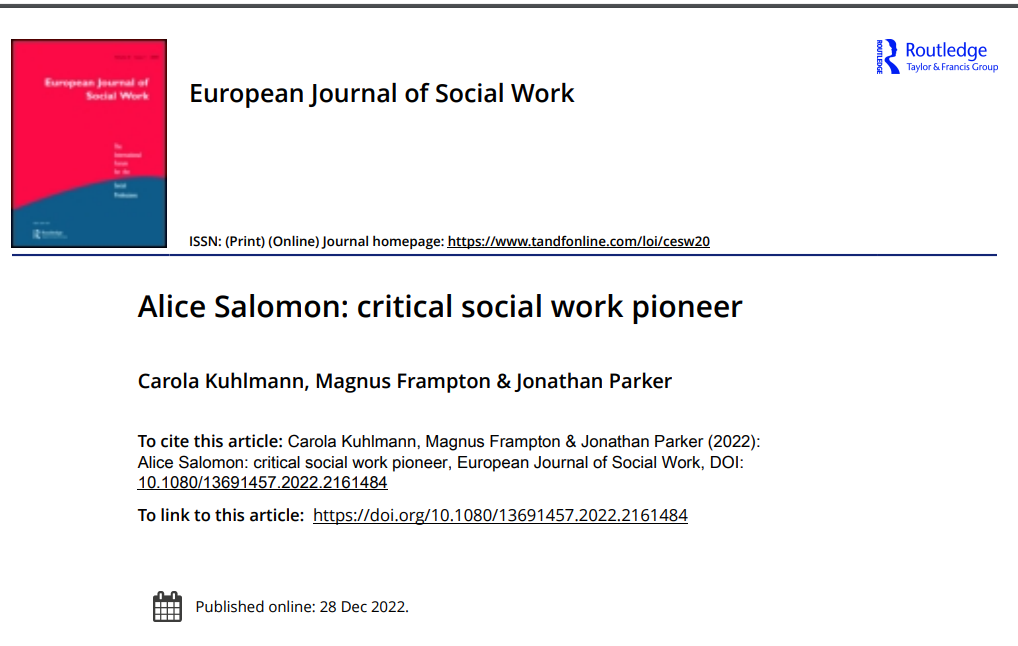
Congratulations!
Prof. Edwin van Teijlingen
CMMPH
Reference:
The precarious situation of migrant workers engaged in building the football stadiums in Qatar has been well documented. It was brought to the fore during the FIFA Men’s Football World Cup. Their working conditions as well as their living conditions are often very poor. During the games the Qatar World Cup’s chief executive, Nasser al-Khater reportedly made the rather flippant comment: “Death is a natural part of life, whether it’s at work, whether it’s in your sleep.” Begum and Worden see this as part of Qatar’s shameful government attitude towards the often preventable deaths of migrant workers, which in their view is reflected in the authorities’ failure to investigate the thousands of migrant worker deaths since 2010. [1]
Today Dr. Pramod Regmi, Dr. Nirmal Aryal, Prof. Edwin van Teijlingen, and BU Visiting Professor Padam Simkhada published ‘Excessive Mortalities among Migrant Workers: the Case of the 2022 FIFA World Cup’ appeared in print [12]. At the time of submission to the Europasian Journal of Medical Science we wrote “The men’s FIFA Football World Cup 2022 is in full flow in Qatar” [2], but, of course, it has finished with a very exciting final between Argentina and France. Even with a fast review and acceptance process there was no chance that our ‘Brief Communication’ was going to be published during the World Cup. The delay, however, gives us the opportunity today to remind our readers of the need to keep the plight of migrant workers in the Middle East on the world’s agenda.
The FIFA World Cup brought these poor conditions and exploitation of foreign workers in the Middle East to the world’s attention. However, there is a great risk that the attention of the world, including that of campaigners, pressure groups, the media, politicians, and so on moves on to the next ‘hot’ topic. [3]
References:
Dr. Dawn Morley and Prof. Debbie Holley, both in the Department of Nursing Sciences, published a chapter in the book: Evaluating Academic Innovations in Higher Education during COVID-19. Their chapter Agile Learning Environments amid Disruptionis edited collection.
The book addresses the need of evaluating innovative or non-traditional academic schemes for understanding their feasibility in extraordinary educational environments. The individual chapters are enriched with robust appraisals of policies and practices linked to academic innovations in higher education during the unprecedented COVID-19 pandemic. The case studies report wide-ranging teaching, learning and academic support practices within online, open, blended and distance learning models. The findings supply two domains of scholarship: evidence-based scenarios through real-world case studies, and a critical evaluation of educational quality through research-informed argument. The evidence gathered from countries, such as Australia, Bangladesh, Canada, China, India, Malaysia, Nepal, Saudi Arabia, Thailand, and the UK show empowering and deterring elements of academic innovation amid disruptions. Although this book highlights academic innovations in disruptive situations, they emerge as powerful tools and approaches to be considered in traditional face to face learning.
‘Agile Learning Environments amid Disruption: Evaluating Academic Innovations in Higher Education during COVID-19’ is now available online!! Please check the publisher’s website access is free: https://link.springer.com/book/10.1007/978-3-030-92979-4
Congratulations!
Prof. Edwin van Teijlingen
 On the day that The Sun took down an column in which Jeremy Clarkson spat vitriol at Meghan Markle, it seems odd to question what the role is of an editor in preventing material from being published. Especially since Ipso (the independent press standards organisation) received more complaints (17,500+) about the column published on Friday 16th December than the total it received in the whole of 2021.
On the day that The Sun took down an column in which Jeremy Clarkson spat vitriol at Meghan Markle, it seems odd to question what the role is of an editor in preventing material from being published. Especially since Ipso (the independent press standards organisation) received more complaints (17,500+) about the column published on Friday 16th December than the total it received in the whole of 2021. 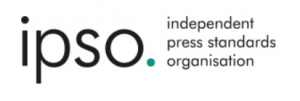 Not publishing an article is of course censorship. Many will be calling for the column to be withdrawn and questioning why the editor accepted it in the first place. Censorship is the suppression or prohibition of any parts of a book, article, film, blog, news, etc. that are considered obscene, politically unacceptable, or a threat to security.
Not publishing an article is of course censorship. Many will be calling for the column to be withdrawn and questioning why the editor accepted it in the first place. Censorship is the suppression or prohibition of any parts of a book, article, film, blog, news, etc. that are considered obscene, politically unacceptable, or a threat to security.
But what if you are not a Mr. Clarkson, but you are a conscientious academic, doing proper research and drafting an evidence-based paper and the editor of an academic journal refuses to publish your article, not because of academic quality, but because the “…manuscript is likely to create disharmony in society”. With the additional detail, that according to the “National Ethical Guidelines for Health Research in Nepal, 2022, section 3, article 2.2 and section 3, article 3.1, this manuscript can’t be accepted for publication.” We (Nirmal Aryal, Pramod Regmi, Shovita Dhakal Adhikari, Shreeman Sharma & Edwin van Teijlingen) had submitted a paper with the title ‘Moral panic, fear, stigma, and discrimination against returnee migrants and Muslim populations in Nepal: analyses of COVID-19 media content’ to a health journal. We don’t think the title of the journal is relevant at this stage.
In the first round of reviewing one of the reviewers questioned our focus on the Muslim population. In our resubmission we stressed that we focused on two separate population groups because the media in Nepal did. In other words, we had noticed discriminatory media coverage towards returnee migrants (particularly those from India) and Muslim populations living in Nepal. These are key populations which experienced stigmatising and ostracising behaviour and media coverage further instigated moral panic and fear. We also conducted interviews with returnee migrants, Muslims in Nepal and key stakeholders, including agencies working with these sub-populations, and these findings have already been published. [1] Image how we felt being censored or in other words ‘cancelled’.
Our paper addressed issues, explanations and allegations related to COVID-19 as portrayed in the media in Nepal, indeed some discriminatory and many very unfair. However, as researchers we were merely the ‘messenger of bad news’. If Mr. Clarkson had not been headline news we would probably have called this blog ‘Don’t shoot the messenger!”.
References:
On the 24 November 2022 the NIHR Research Design Service (RDS) held the “Role of Public Co-applicants and Public Involvement Leads in health and care research” event. The event offered a great opportunity to explore these roles and provide some useful clarifications and discussions.
All resources are now available.
They include:
Your local branch of the NIHR RDS (Research Design Service) is based within the BU Clinical Research Unit (BUCRU) If you need help with patient and public involvement (PPI) or any other aspect of your grant application, don’t hesitate to get in touch in the new year.
We advise on all aspects of developing an application and can review application drafts as well as put them to a mock funding panel (run by RDS South West) known as Project Review Committee, which is a fantastic opportunity for researchers to obtain a critical review of a proposed grant application before this is sent to a funding body or if you’re hoping to resubmit the panel can provide some excellent tips and feedback.
Contact us as early as possible to benefit fully from the advice
Feel free to call us on 01202 961939 or send us an email.
We are now on leave for the Christmas break but look forward to collaborations and conversations in January 2023.
Wishing all of our colleagues a lovely Christmas and new year break.
Practitioners in the education, welfare and youth sectors possess invaluable and unparalleled experience. Still, they need to reinforce this with continuing professional development (CPD) involving specialised training courses to expand their knowledge and evaluate their practices.
The importance of CPD is linked to lifelong learning, which champions continuous learning for all, regardless of age or profession and beyond compulsory levels of education. Lifelong learning boosts well-being and confidence at work. However, it could be challenging to promote among individuals with a fixed mindset towards learning who perceive their abilities as unchangeable and are typically reluctant to embrace opportunities to upskill or tasks that require extra effort.
However, one’s mindset is not always the problem. Many adults cite excessive work demands as a barrier to professional development, implying that employers have a shared responsibility to create the time for employees to undertake CPD training.
According to the annual Adult Participation in Learning Survey in the UK, adult learning has increased post-pandemic, with fewer adults choosing to learn because it is a job requirement and more adults motivated to learn to improve their knowledge and skill. Results from the survey, however, indicate sub-regional differences in adult learning participation rates, with the highest percentage in London (56% in 2022) and the lowest percentages so far in the North East (37%) and South West (35%) of England.
Bridging the regional and adult skills gap requires investment in more CPD opportunities that are accessible, high-quality, and relevant, like the Coaching At-risk Young People CPD delivered by the SPEED-You-UP team at Bournemouth University.
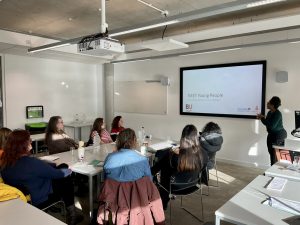
Participants at the SPEED-You-UP Training Programme, Fusion Building, Talbot Campus.
SPEED-You-UP is a project aimed at improving the employability and entrepreneurship skills of young people in disadvantaged coastal communities across England, France, Belgium, and the Netherlands, through entrepreneurship education for young people at risk of early school leaving and those currently not in employment, education or training (NEET). The project tackles unemployment and economic inactivity among young people by considering individual-level factors like socioeconomic backgrounds, low motivation and confidence and structural-level constraints like inadequate investments in professional development for teachers and youth sector professionals.
On 22 November 2022 at Bournemouth University, Talbot Campus, practitioners from the welfare, business, and creative sectors engaged in three workshops on the following topics: The Value of Entrepreneurship Education for (at-risk) NEET Young people, Developing a Coaching Approach for Young People, and Stakeholder Management & Collaboration. The training programme was led by Dr Carly Stewart, Associate Professor, Head of Department for People and Organisations and Principal Investigator of the SPEED-You-UP project, Dr Esther Anwuzia, and Ms Preethi Rajaprakasam.
In meeting the accessibility criteria, the training programme was free and open to experienced and aspiring professionals. The sessions were also designed to be interactive and enlightening. On the one hand, it leveraged the unique experiences of participants by encouraging group discussions and, on the other, equipped participants with evidence-based knowledge and skills to work with vulnerable young people. In attendance were representatives from SWRAC, Young Enterprise, Dorset Growth Hub, West Howe Community Enterprises, and Bournemouth University’s Business Engagement and Knowledge Exchange Department. Entrepreneurs from the creative industry were also present.
Participants discussed the challenges of working with NEET young people, the causes of early school leaving, the benefits of coaching for young people, and stakeholder collaboration.
The key takeaways from the training were:
___________________________________________
Dr Esther Anwuzia, Postdoctoral Researcher, Entrepreneurship and Youth Employability, on behalf of the SPEED-You-UP team at Bournemouth University.